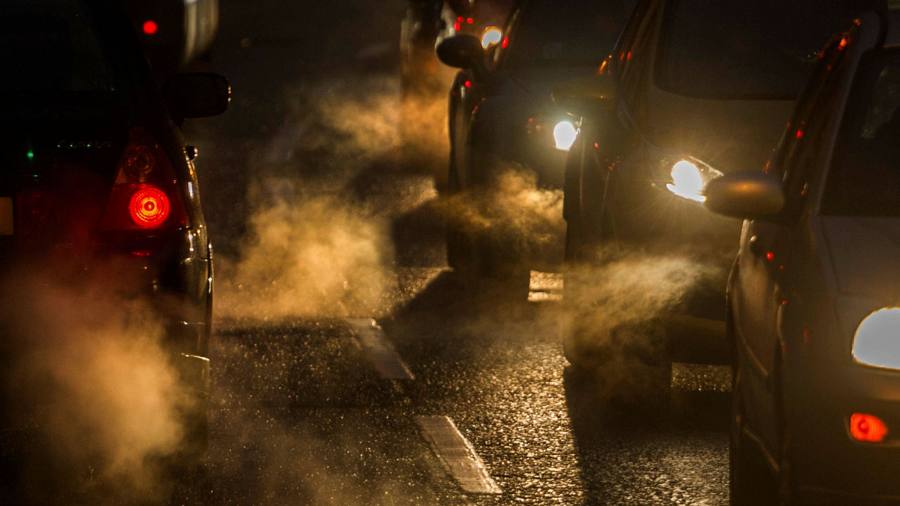[ad_1]
It was exactly a year ago. Do you remember where you were? The UK government was dubious how bad coronavirus would be. Prime Minister Boris Johnson breezily advised people to confront the airborne virus with handwashing. The Cheltenham Gold Cup took place with actual crowds.
This dallying was disastrous. We would never make the same mistakes again, right? In fact, we are already repeating them — on climate change.
In this month’s Budget, chancellor Rishi Sunak was “pleased†to freeze fuel duty again. Since they came to power in 2010, the Tories have never increased the 58p per litre tax on petrol and diesel, even while declaring a climate emergency. The freeze is costing the Treasury £12bn a year.
Now Johnson plans to cut about half of the £13 passenger duty on domestic flights. A flight from London to Edinburgh emits eight times more CO2 than the train. But if you take the clean option, you’ll be a sucker. Transport secretary Grant Shapps once moonlighted as a web marketer under the alter-ego Mr Green. Perhaps nominative determinism doesn’t work with pseudonyms.
The government is making the same mistake it did with coronavirus: it underestimates its own ability to lead, and the public appetite for change. A citizens’ assembly backed a tax on frequent flyers.
Fuel duty and air passenger duty are the tip of the (melting) iceberg. “If net zero is a core tenet of the government, the tax system should reflect this,†says Jonny Marshall, a researcher at the Energy and Climate Intelligence Unit.
The UK charges a reduced rate of value added tax on gas heating, even though it wants people to shift to electric heat pumps. It charges the full 20 per cent rate on retrofitting homes, when energy efficiency is desperately needed. Aviation fuel is not taxed. Beef is subsidised.
Sunak has failed to fix these legacy issues. He has also added new distortions. His new “super-deduction†to incentivise business investment comes with no green conditions. He plans to take more in income tax and corporation tax, rather than shifting tax on to polluting activities.
The Tories were willing to make people pay for their plastic pollution, via the plastic bag levy. They were prepared to tax people away from obesity, through the sugar tax. But when it comes to carbon taxes, they run scared — unable to level with voters. What happened to the party of individual responsibility? What happened to Build Back Better?
Maybe they’ll get round to it, once they’ve fixed the economy, saved the Union and negotiated a global climate deal. Sadly, like a pandemic, climate action is harder the longer you delay. Draughty homes are being built now. Petrol cars are being bought now. A Treasury net zero review is due this spring: it should require Johnson and Sunak to accept that you need sticks as well as carrots. Some green taxes would change behaviour. Others would raise money for green investments.
Coronavirus caught even senior scientists off-guard. I understand why ministers thought it couldn’t be as bad as it seemed. But there’s no such excuse with climate change, where the scientists have been alarmed for years and are becoming more so.
As British children return to school, they may learn about the Gulf Stream — the flow of warm water from the Caribbean, which moderates the UK’s summers and winters. They probably won’t learn that scientists think this flow is now at its weakest for a millennium, partly because of Arctic meltwater. As the current weakens this century, the UK’s winters will probably become much colder and less stable.
My guess is that, in 20 years’ time, the public won’t care much about Brexit or the pandemic. They will judge today’s leaders on how bold they were on climate change. They will remember where we were, when we could have made a difference.
[ad_2]
Source link





